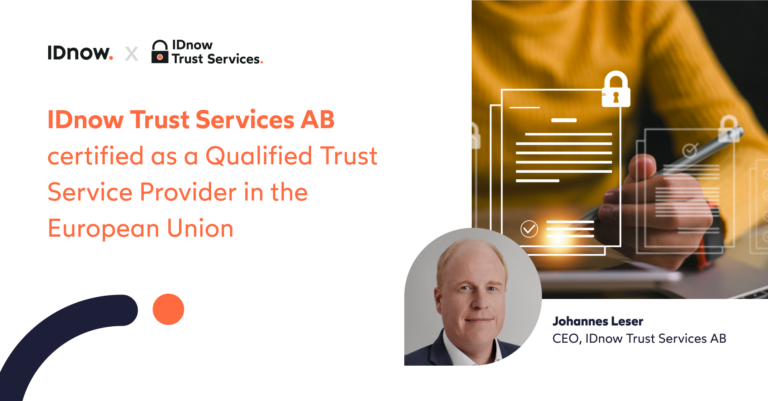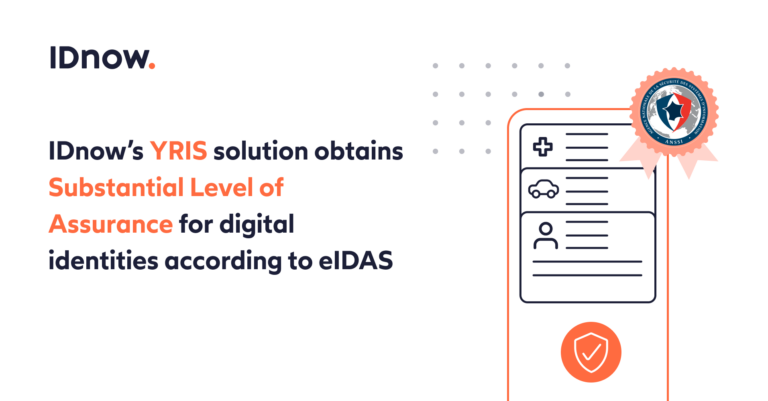The PVID certifications issued by ANSSI for the automated IDCheck.io identity proofing service and the videochat-based VideoIdent mark a new milestone in the identity proofing service provider’s desire to become the leading European player on the digital identity market.
Munich, August 1, 2023 – IDnow, a leading identity proofing platform provider in Europe, has obtained the remote identity verification certification known as PVID (prestataire de verification d’identité à distance) on the level “substantial” for its IDCheck.io Identity Proofing Service and VideoIdent Qualified Electronic Signature. A symbol of the culmination of months of collaboration and involvement of all teams, this certification demonstrates the company’s desire to offer its customers solutions that are safe, compliant, and fully in line with the regulations in France.
PVID – European leadership in digital and financial security
In a society where transactions have become considerably digitized and are now mostly done remotely, the risk of identity theft has increased, particularly in the banking and financial sector. This is why the National Agency for the Security of Information Systems (Agence nationale de la sécurité des systèmes d’information, the ANSSI) established a new framework defining stricter requirements of identity verification providers. The new standard leads the way for select identity providers to effectively fight against fraud – a singular goal across rigorous Anti Money Laundering (AML) laws in France and throughout Europe. PVID raises cybersecurity standards for traditional finance, digital finance, trust services, and beyond.
Introduced in March 2021, PVID certifies providers the ability to offer identity verification as defined by Europe’s Regulation on Electronic Identification and Trust Services, eIDAS Regulation. Where eIDAS establishes European levels of security to meet the equivalence of a face-to-face verification for various use cases, PVID implements these levels of security to enable compliant digital onboarding for banking and other financial services in France. The certification, issued for two years, allows highly regulated banking or FinServ players to access a robust, secure service offering, thus enabling remote identification while reducing the risk of identity fraud.
France is the first country in the European Union to have established an effective policy for remote identity verification, and was followed by the work of the European Telecommunications Standards Institute (ETSI) on the ETSI TS 119 461 standard, which pursues a similar purpose.
An undeniable competitive advantage in the digital identity proofing market
As only the second private player to obtain the coveted certification, IDnow has a major advantage in the digital identity proofing market. The certified IDCheck.io Identity Proofing Service and VideoIdent Qualified Electronic Signature offer customers a trusted onboarding process that meets the security requirements of the ACPR (Autorité de contrôle prudentiel et de resolution) and supports the fight against money laundering and fraud. The solutions allow banks to offer flexible, simple, and fast digital paths to improve conversion rates through 100% remote identification, equivalent to a face-to-face process.
“Obtaining PVID certification is a source of great pride and validation for IDnow and a real recognition of our expertise in the digital identity market in France,” comments Rayissa Armata, Senior Head of Regulatory Affairs at IDnow.
“As the regulatory landscape aims to extend its reach to additional digital services across Europe, PVID offers national regulators an example of a consistent framework that places privacy and security at its forefront. Beyond France, PVID represents one more step for IDnow in its ambition to offer its customers the most secure solutions certified by reference organizations, such as ANSSI. Standards like PVID or TS 119 461 have the potential to be building blocks for future onboarding regulations across geographies and applications, like digital identity wallets. The experience gained from PVID or our contribution to writing TS 119 461 will prove invaluable, and few companies will be able to advise customers as well as IDnow on navigating in this sphere,” adds Rayissa.



